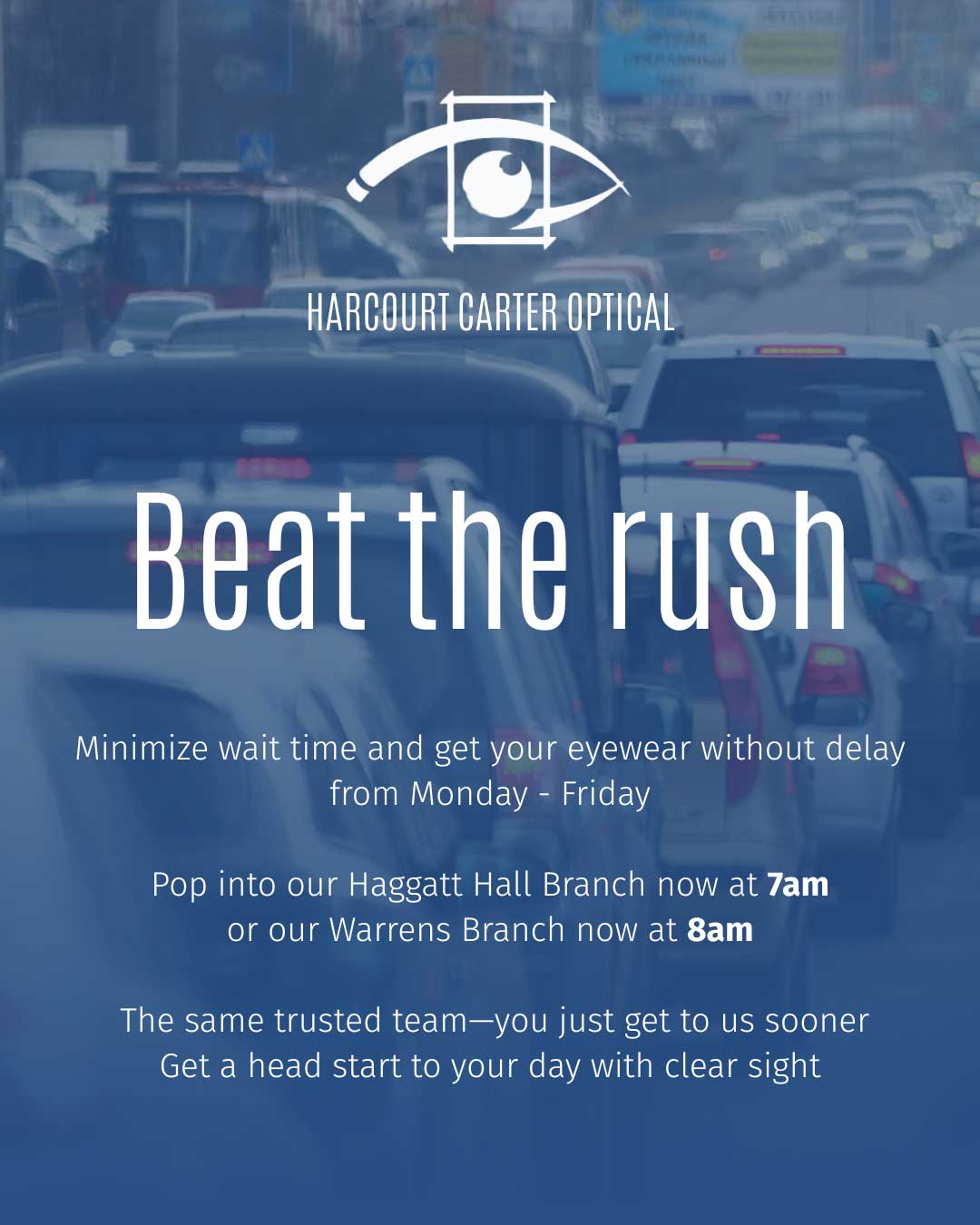
Welcome to Harcourt Carter Optical
"We care for people, not just eyes!" Dedicated to providing an exceptional patient experience by using our expertise and
technology along with time and attention to ensure that each patient knows we truly care for you.
We offer a wide range of services to address all your eyecare needs, from the initial comprehensive eye examination to specialty contact lens fitting and professional dispensing. We’ve got you from the beginning to the end!
Our designer frames and sunglasses are priced for every budget. Come in today to one of our 2 conveniently located stores at The Dome Mall or One+ Haggatt Hall.
We are especially proud of our contact lens selection as well as our abilities to fit all types of contact lenses available. Contacts are constantly being improved for more comfort and better vision.
Your health insurance may provide benefits to help you pay for your eye care services and products. We accept vision care insurance from many providers.
Whether it's upgrading to progressive lenses, grabbing a spare set of trendy frames, or investing in top-tier sunglasses, these specials make eye care more accessible and affordable.